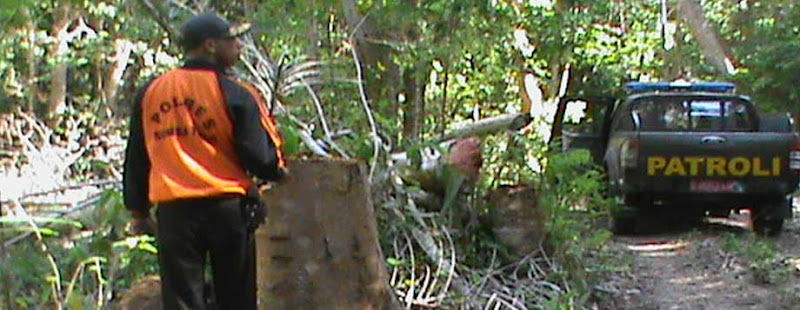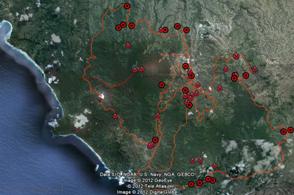
The project in January 2015 selected two-community forest; a village forest located in the village of
Nanga Lauk (Fig. 1) and a customary forest belonging to the community in the village of
Punan Adiu (Fig.2) to demonstrate a small scale of community based PES activity. Both villages administratively located under the districts of
Kapuas Hulu and
Malinau respectively.

The PES activity will be based on the resource availability in the two selected forest such as forest coverage, biodiversity, clean water and non-timber forest products (NTFP) which may include honey bees, rattan,
tengkawang fruit, agar wood. To ensure that the PES activities in both forests are marketable and economically benefit to the respective community, the project has appointed Plan Vivo assessor to certify the PES.
In acquiring PES certificate, the project has to do a number of activity that suit with the Plan Vivo requirement among other things are

(1) legal status of the selected forest areas, (2) land cover analysis and carbon content estimation, (3) biodiversity and social economic status of the villages which administer the forest area and (4) the management plan of the areas as well as the (5) PES agreement with communities or free, prior informed consent.
Once the requirements are obtained, the Plan Vivo team will conduct verification and validation before they issue the PES certificate. It is expected that the works on PES including certification will be fully completed in November 2017.


To support the PES activity, the project in cooperation with local parliament since September 2016 has facilitated the creation of local regulation related to PES and Benefit Sharing from the PES activity. In addition, subsequent to the receiving the PES certificates, the project is going to help the two community to market and negotiate the PES certificate with the potential carbon, biodiversity and NTFP investors.
[teks&foto | ©PJLHK | 31032017 | tonnysoehartono]









































0 komentar:
Posting Komentar